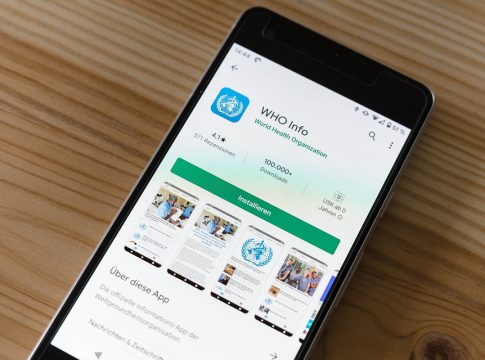Are you ready to dive into the exhilarating world of mobile app development? If you’re a budding entrepreneur or a creative mind looking to turn a brilliant idea into a reality, launching your first mobile app can be both thrilling and overwhelming. The mobile app market is continually evolving, making it essential for you to equip yourself with the right tools and knowledge before taking the plunge. In this article, we’ll walk you through 20 must-know tips for launching your first mobile app, ensuring you sidestep common pitfalls while maximizing your chances of success.
1. Validate Your Idea
Before you start drafting code or picking colors, it’s vital to validate your app idea. Conduct surveys, interviews, or pilot tests to gauge interest. Use this feedback to hone your concept and avoid wasting time on an unviable project.
2. Research Competitors
Understanding the competition is crucial. Identify apps similar to yours and analyze their strengths and weaknesses. What do users love? What features are missing? This research can provide invaluable insights that shape your app’s development.
3. Define Your Target Audience
Pinpointing your ideal user is essential. Identify demographics such as age, location, and interests. By knowing who your app is for, you can tailor your design and functionality to meet their needs effectively.
4. Create a Feature List
Start with a bare-bones feature list. Focus on “must-have” features initially, avoiding the temptation to add unnecessary bells and whistles. This minimal viable product (MVP) approach allows you to launch quicker and iterate based on real user feedback.
5. Sketch Your App’s Design
Visualizing your app through sketches or wireframes can clarify your concept. This step helps in outlining navigation and thinking about user experience (UX) before ever writing a line of code.
6. Choose the Right Development Method
Decide between native, hybrid, or web app development based on your budget, timeline, and target platforms. Native apps offer better performance, while hybrid apps save time and resources. Make an informed choice to set the foundation for your project.
7. Assemble a Talented Team
If you’re not a developer, consider hiring skilled professionals or partnering with someone who is. A competent team can turn your vision into a polished product. Look for expertise in design, development, and marketing.
8. Focus on User Experience
An intuitive and fluid user experience is a game-changer. Ensure that users can navigate effortlessly, access features conveniently, and enjoy a pleasing design. Happy users are likely to recommend your app.
9. Test, Test, Test
Quality assurance is non-negotiable. Conduct extensive testing to identify bugs, glitches, or usability issues. Testing your app before launch can save you from negative reviews and uninstallations.
10. Prepare for App Store Guidelines
Before hitting ‘submit,’ familiarize yourself with the guidelines of your chosen app stores. Ensure that your app complies with these rules to avoid rejection and unexpected delays.
11. Craft an Engaging App Store Listing
Your app store listing is your first opportunity to impress potential users. Write a compelling description, use relevant keywords (such as “mobile app” for SEO), and include eye-catching visuals and videos to showcase your app’s unique aspects.
12. Implement Effective Marketing Strategies
Planning a marketing strategy ahead of your launch can drive initial downloads. Consider social media promotions, influencer partnerships, and teaser campaigns to create buzz leading up to your launch.
13. Launch with a Bang
Timing is everything! Choose a strategic day to launch your app when you can garner maximum attention and downloads. Make sure your marketing campaigns are in full swing to coincide with launch day.
14. Monitor User Feedback
Once live, keep an eye on user reviews and feedback. This data can provide insights into how your app is performing and what improvements users desire.
15. Keep Updating
The work doesn’t stop at launch. Regular updates that introduce new features, fix bugs, or improve user experience can keep your app relevant and engaging.
16. Engage Your Users
Fostering a community around your app can enhance user retention. Send regular updates, newsletters, and personalized notifications to keep users engaged with your content.
17. Analyze App Performance Metrics
Utilize analytics tools to track your app’s performance. Key metrics such as downloads, user retention, and session times can offer valuable insights into user behavior and help you make data-driven decisions.
18. Prepare for Monetization
If your goal is to make money from your app, have a clear monetization strategy. Decide between in-app purchases, subscription models, or ads, and ensure that your users find value in what you’re offering.
19. Build an MVP First
Don’t try to achieve perfection in your first version. Launching a Minimal Viable Product (MVP) allows you to test the waters and get valuable feedback. This approach saves resources and gives you a better direction for future updates.
20. Don’t Lose Hope
Finally, remember that success may not come overnight. Many popular apps struggled in the beginning. Stay committed, keep iterating on your app, and embrace learning from both triumphs and setbacks.
The Journey Awaits
Launching your first mobile app can be a whirlwind of excitement, challenges, and learning. But by implementing these 20 must-know tips, you’ll be better equipped to navigate the complexities of app development and find your niche in the competitive app market. The world is ready for your innovation!
Now, what challenges have you faced or are you anticipating on your app development journey? Share your thoughts and experiences in the comments!

Covers viral stories, pop culture, and breaking celebrity news.
Bio: Jamie has a sharp eye for what’s buzzing online, tracking social media trends and entertainment headlines around the clock.

